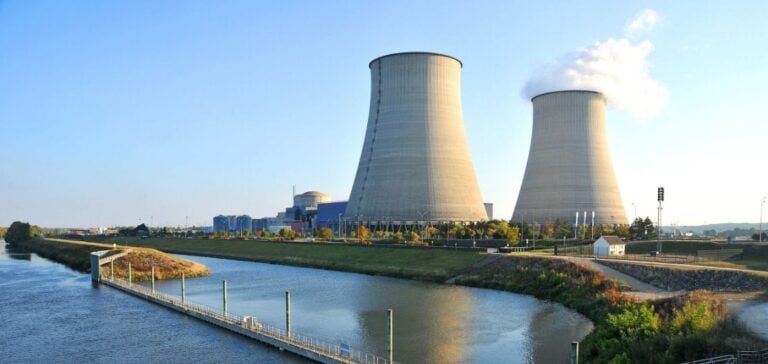The Nuclear Safety and Radiological Protection Authority (ASNR) officially begins operations on January 1, 2025, replacing the Institute for Radiological Protection and Nuclear Safety (IRSN) and the Nuclear Safety Authority (ASN). This merger, aimed at streamlining decision-making within the nuclear program’s relaunch, has raised significant concerns among professional organizations.
Strategic merger under financial pressure
This reform, decided at the highest level of the French government, was approved in April 2024 after intense parliamentary debate. The stated goal is to streamline nuclear safety decisions to accelerate new reactor deployment and strengthen France’s competitiveness. However, unions from the former IRSN criticize the tight timeline and lack of financial assurances for the new entity’s operations.
ASNR’s budget is at the heart of these concerns. According to the inter-union group comprising CFDT, CFE-CGC, and CGT, the organization could face a budgetary deadlock as early as February 2025. These financial constraints threaten essential activities, including independent expertise vital for sector regulation.
Independence in question
One major point of contention is the independence between technical expertise and decision-making. The ASNR, now responsible for both evaluations and regulatory decisions, could suffer from a lack of separation between these critical functions. Unions have demanded that this independence be clearly outlined in the internal regulations, though this document remains under discussion.
In November 2024, the IRSN’s director general had already warned about the lack of guarantees regarding the new structure’s ability to function properly within the given timeframe. Simultaneously, several associations expressed concerns about increased opacity in the decision-making process.
Impact on the international stage
The IRSN, globally recognized for its technical expertise, leaves behind a legacy that professionals in the field consider challenging to replicate. The disappearance of this institute raises questions about France’s ability to maintain its leadership in nuclear safety.
Despite criticism, the government continues to defend the reform as a strategic lever to meet the sector’s growing needs. The creation of ASNR aligns with a national policy to secure energy supply while reducing approval timelines for new projects.
A transition under close scrutiny
As the ASNR begins its activity, nuclear market stakeholders in France and abroad are closely monitoring this transition. Financial, technical, and political challenges surrounding this reform make it a sensitive issue for the future of the French nuclear industry.






















